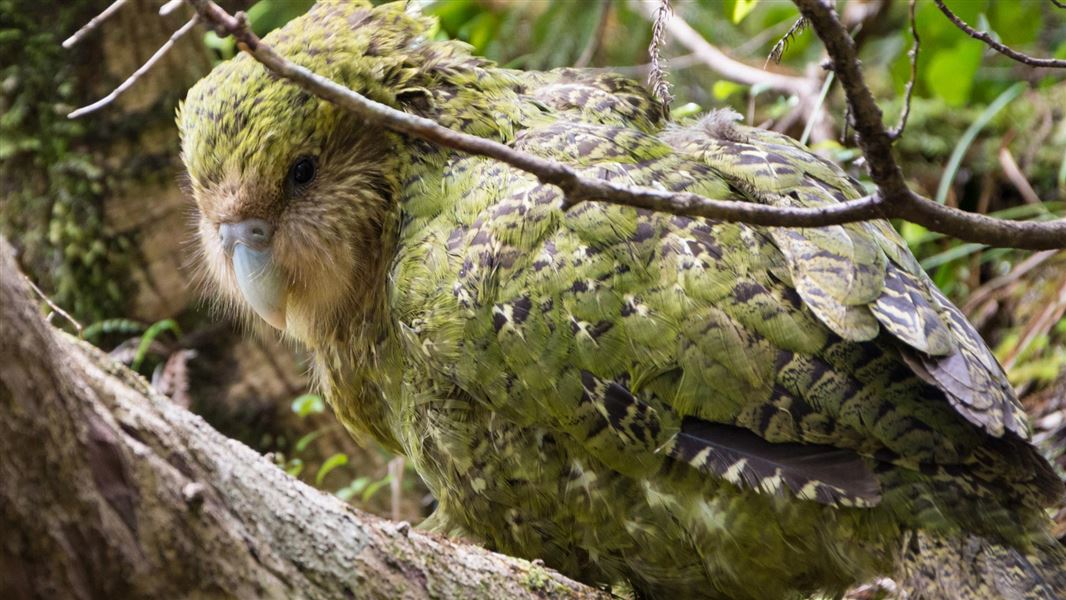Updated 8 April 2022
Aspergillosis is an infection caused by the fungus aspergillus and often causes severe respiratory illness, which can be fatal.
Warm and dry weather this breeding season may be causing high levels of the fungus in the environment. Similar conditions caused an aspergillosis outbreak during the kākāpō breeding season on Whenua Hou/Codfish Island in 2019.
At this stage, one adult female (Jemma) has died from the disease, and another adult female (Roha) and five chicks have been diagnosed. The chicks are receiving treatment at the Dunedin Wildlife Hospital, while Roha has been transferred to Auckland Zoo following critical intensive care in Dunedin.
Managing the outbreak
The team have increased monitoring of all nests on Anchor Island, regularly checking the health and weights of the chicks as well as remotely monitoring the activity levels of all adult birds.
As a precautionary measure, a selection of chicks is being taken to the Dunedin Wildlife Hospital for CT scans. Genetically important chicks are being prioritised as well as any we have health concerns for.
Removal of kākāpō off the islands and hand rearing chicks is limited as much as possible for the long-term benefit of the population. Holding kākāpō in captivity is often highly stressful for the birds and it is much better for the chicks to be reared naturally in nests.
The Kākāpō Recovery team is very grateful for the support of the teams at the Dunedin Wildlife Hospital and Auckland Zoo, as well as AgResearch for providing access to a CT scanner at their Invermay facility, Air New Zealand for flying birds to Auckland and the Kākāpō Aspergillosis Research Consortium for all their help.
Kākāpō on Whenua Hou/Codfish Island are also being closely monitored but so far aspergillosis hasn’t been identified in birds there.
Is it as bad as the 2019 outbreak?
In 2019 a total of 21 birds were affected, and two adults and seven chicks died due to the disease.
The current outbreak is occurring earlier in the breeding season than the one in 2019 and the chicks so far found to have the disease are younger than those that underwent treatment in 2019. As chicks get close to fledging at approximately 65 days of age, we expect the risk of infection will be lower as they leave the nest environment.
While we have a much better understanding of how to effectively treat this disease than we did in 2019, detecting sick birds early enough to treat them remains a challenge and therefore we do sadly expect to see further birds die.
More about aspergillosis
Aspergillosis is an infection caused by a type of fungus. It can affect people as well as birds and other animals.
Aspergillosis spores are abundant in the environment and are typically inhaled. The spores usually only cause disease if individuals have reduced immunity and/or if there is an increased concentration of spores in the environment.
